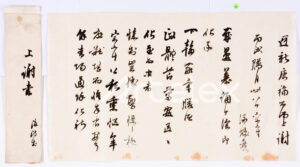Min Yong-hwan (1861 – 1905) was a statesman of the Korean Empire and an independence activist who opposed the signing of the Eulsa Treaty in 1905, ultimately committing suicide in protest.
His courtesy name was Munyak, and his pen name was Gyejeong.
Min supported the Independence Club and pursued reforms, though he faced opposition from conservative forces.
In November 1905, when the Eulsa Treaty was signed, Min repeatedly submitted petitions opposing the treaty but failed to stop it. On November 30, he left a will titled “A Final Appeal to My Twenty Million Fellow Koreans” before taking his own life.
His death became a symbolic event in the history of the Korean independence movement. In 1962, Min was posthumously awarded the Order of Merit for National Foundation (Republic of Korea Medal).
.

